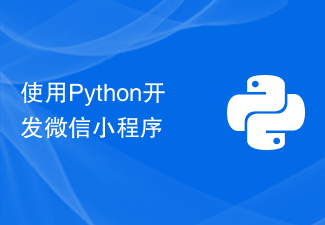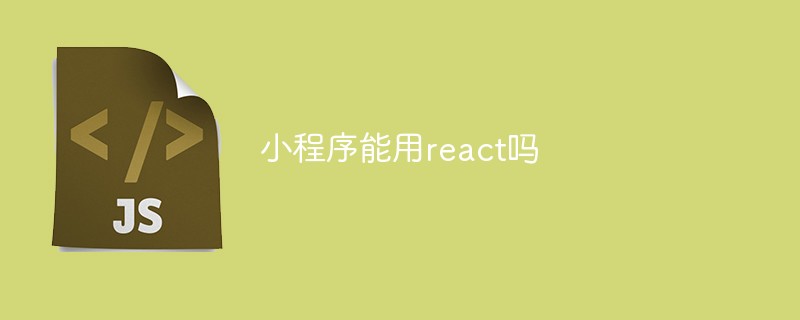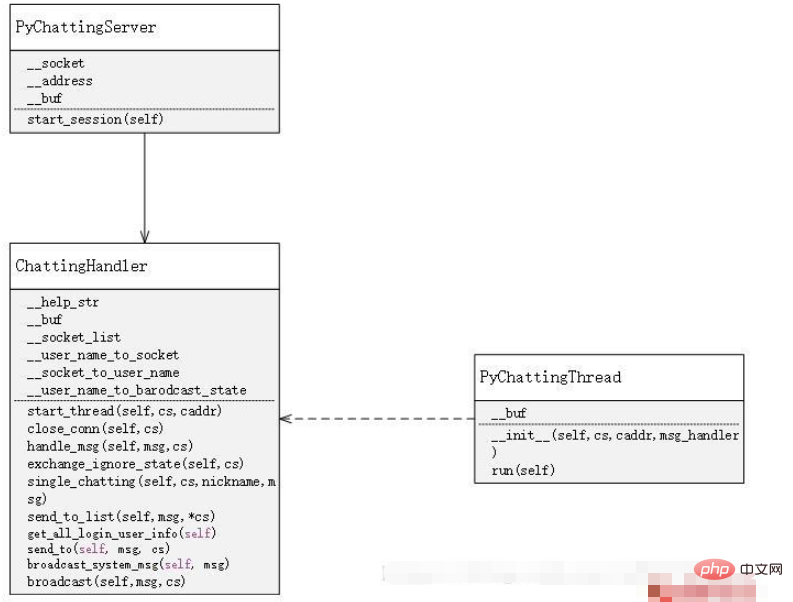This article brings you an introduction to the grammar commonly used in small programs. It has certain reference value. Friends in need can refer to it. I hope it will be helpful to you.
Next, I will start from the perspective of a beginner. Of course, the following articles will not introduce the knowledge points of small programs in detail one by one. They will mainly compare some ideas of Android. , to express some personal thoughts.
Introduction to api syntax
1. Box model Flex
1. flex-wrap:
nowrap (default): no line wrapping.
wrap: wrap, with the first line at the top.
wrap-reverse: wrap, the first line is below.
2. justify-content: The position where all child views are displayed in the parent View
flex-start (default value): left-alignedflex-end: right-aligned
center: centered
*space-between: Align both ends, and the intervals between items are equal. Therefore, this can be considered as setting the weight layout, with each sub-View occupying one share. If there is only one sub-View, it is equivalent to flex-start
*space-around: evenly distributed on the row, leaving half of the gap space on both sides. The space between items is twice as large as the space between items and the border. If there is only one child view (acting on the parent view), then the child view is actually centered and aligned
space-between property graphic display:

3. align-content
Content is centered. Only applicable to multi-line flex containers, single line does not work
flex-start: aligned with the starting point of the cross axis.
flex-end: aligned with the end point of the cross axis.
center: aligned with the midpoint of the cross axis.
space-between: Align with both ends of the cross axis, and the intervals between the axes are evenly distributed.
space-around: The intervals on both sides of each axis are equal. Therefore, the distance between the axes is twice as large as the distance between the axes and the frame.
stretch (default value): The axis occupies the entire cross axis.
4. align-items
Align each View in the parent view. Applies to all flex containers.
flex-start: Align the starting point of the cross axis.
flex-end: Align the end point of the cross axis.
center: Align the midpoint of the cross axis.
baseline: The baseline alignment of the first line of text of the item.
stretch (default value): If the item does not set a height or is set to auto, it will occupy the entire height of the container.
5. Example
1) Let the child View of the container be displayed in the center
Add in the container (parent View):
display: flex; align-items: center;
2) Let a View layout is displayed at the bottom or top layer, similar to FramLayout layout
Use z-index attribute:
{
position:absolute;
left:0px;
top:0px;
z-index:-1;
}Note:
1) z-index can only be started in absolute Function
2) z-index:-1, the modified View is displayed at the bottom layer (can be used as the background) z-index:1, displayed at the outermost layer
2. js Related api
1, variable
We know that in Java, if it is an object that needs to be used in the entire class, we will declare it as a member variable in the class, in a certain Valid declarations within concrete methods are local variables. Then the corresponding applet is:
var: member variable in java
let: local variable in java
2. Basic data type Boolean
var test0 = "" //false
var test1 = "aaaaaaaa" // true
var test2 = null // false
var test3 = 11 // true
var test4 = 0 // false
var test5 = {} // true Summary: This is the same as java The difference is still very big
1) For numeric types (int, float), as long as the number is non-0, it is true;
2) For string (String), only null, and "" empty string are true is false, everything else is false
3) For objects, except that the object is null, it is false, and everything else is true. Even if this object is an empty object {}
3. Function
(1) Function definition
Definition in page:
onShow: function (params) {
//方法体
},Definition in non-page:
function test(params){
//方法体}Summary:
1. The first definition must add a "," comma at the end, while the second method cannot add
2. Different from java, the function parameter params does not need to specify a type, so in theory, any type can be passed when calling the method. But this is generally not done. Personally, I think Java is more rigorous and more readable.
3. There is no limit on the number of parameter params
(2) Callback function
1) Function definition
function request(onFail){
//调用接口
wx.request({
success: function (res) { //接口返回数据
onFail(res)
})
}2) Function call
wx.cyou.cache.getCacheValue("key_test", function(result){
console.log("result==", result)
})(3) Notes
1) The applet does not support function overloading and function rewriting
2) When a function calls a function, the function method does not support direct transfer. Look at the following example:
function request1(function1) {
request2(function1)
}
问题: 这在request1方法调用request2的时候,参数也是一个函数function1,直接将function1传递给request2是不可以的
解决方式:
function request1(function1) {
request2(new function{
function1()
}})
}
在request2方法的回调函数中去调用function1方法4. Object variables
class Person{
String name; int age;
}In java, if you want to traverse to obtain the Person attribute value name, age, and attribute type String, int. They are all implemented using reflection. So, in small programs, it is much simpler and more crude than Java. Implementation
for (var propertyName in Person){
var name = propertyName //对象Person的属性(String、int)
var value = testInfo[propertyName] // 对象Person的属性值(name、age)
}5、export使用
在调用一个类中的方法或者属性值时,必须要在被调用的方法和属性值,定义的时候用export声明
6、disableScroll使用
问题描述:
有时候,小程序跑在苹果手机上时,会左右滑动退出,也会上下滑动,这样体验不好。这个时候要禁止滑动。
在app.json中,将disableScroll值设置为true 就可以了:
"window": {
"disableScroll": true
}7、页面page数据的获取与设置
let pages = getCurrentPages()
let curPage = pages[pages.length - 1] //获取当前页面
if (curPage.route == url){ //比较获取的页面的url是否跟实际的一致(如url:"pages/order/order")
curPage.setData({ //设置数据
usingOrderList: usingOrderList
})
}8、获取所有的页面
let pages = getCurrentPages() // 获取上一个页面
let prePage = pages[pages.length - 2] //给页面设置数据
prePage.setData({
refreshUserInfo:true
}) //返回到上一个页面
wx.navigateBack({
delta: 1
})注意事项:
调用getCurrentPages()不需要在page环境中(可以视为Android中的Context环境),可以在任何地方直接获取,即util等自定义类中同样生效。类似的还有wx.开头的方法
9、showToast时长设置失效问题
let title = new String(msg) //延时弹toast,是为了解决有时候在接口请求后,设置的duration时间不起作用
setTimeout(function () {
wx.showToast({
title: title,
duration: 1200,
icon: "none"
})
}, 100)10、reLaunch跳转失效问题
//延时跳转,是为了解决有时候wx.reLaunch不起作用,设置的时间不起作用
setTimeout(function(){
wx.reLaunch({
url: '/pages/home/home'
})
},100)The above is the detailed content of Introduction to syntax commonly used in small programs. For more information, please follow other related articles on the PHP Chinese website!
 使用Python开发微信小程序Jun 17, 2023 pm 06:34 PM
使用Python开发微信小程序Jun 17, 2023 pm 06:34 PM随着移动互联网技术和智能手机的普及,微信成为了人们生活中不可或缺的一个应用。而微信小程序则让人们可以在不需要下载安装应用的情况下,直接使用小程序来解决一些简单的需求。本文将介绍如何使用Python来开发微信小程序。一、准备工作在使用Python开发微信小程序之前,需要安装相关的Python库。这里推荐使用wxpy和itchat这两个库。wxpy是一个微信机器
 小程序能用react吗Dec 29, 2022 am 11:06 AM
小程序能用react吗Dec 29, 2022 am 11:06 AM小程序能用react,其使用方法:1、基于“react-reconciler”实现一个渲染器,生成一个DSL;2、创建一个小程序组件,去解析和渲染DSL;3、安装npm,并执行开发者工具中的构建npm;4、在自己的页面中引入包,再利用api即可完成开发。
 用Python编写简单的聊天程序教程May 08, 2023 pm 06:37 PM
用Python编写简单的聊天程序教程May 08, 2023 pm 06:37 PM实现思路x01服务端的建立首先,在服务端,使用socket进行消息的接受,每接受一个socket的请求,就开启一个新的线程来管理消息的分发与接受,同时,又存在一个handler来管理所有的线程,从而实现对聊天室的各种功能的处理x02客户端的建立客户端的建立就要比服务端简单多了,客户端的作用只是对消息的发送以及接受,以及按照特定的规则去输入特定的字符从而实现不同的功能的使用,因此,在客户端这里,只需要去使用两个线程,一个是专门用于接受消息,一个是专门用于发送消息的至于为什么不用一个呢,那是因为,只
 Java语言中的微信小程序开发介绍Jun 09, 2023 pm 10:40 PM
Java语言中的微信小程序开发介绍Jun 09, 2023 pm 10:40 PM微信小程序是一种轻量级的应用程序,可以在微信平台上运行,不需要下载安装,方便快捷。Java语言作为一种广泛应用于企业级应用开发的语言,也可以用于微信小程序的开发。在Java语言中,可以使用SpringBoot框架和第三方工具包来开发微信小程序。下面是一个简单的微信小程序开发过程。创建微信小程序首先,需要在微信公众平台上注册一个小程序。注册成功后,可以获取到
 教你如何在小程序中用公众号模板消息(附详细思路)Nov 04, 2022 pm 04:53 PM
教你如何在小程序中用公众号模板消息(附详细思路)Nov 04, 2022 pm 04:53 PM本篇文章给大家带来了关于微信小程序的相关问题,其中主要介绍了如何在小程序中用公众号模板消息,下面一起来看一下,希望对大家有帮助。
 PHP与小程序的地理位置定位与地图显示Jul 04, 2023 pm 04:01 PM
PHP与小程序的地理位置定位与地图显示Jul 04, 2023 pm 04:01 PMPHP与小程序的地理位置定位与地图显示地理位置定位与地图显示在现代科技中已经成为了必备的功能之一。随着移动设备的普及,人们对于定位和地图显示的需求也越来越高。在开发过程中,PHP和小程序是常见的两种技术选择。本文将为大家介绍PHP与小程序中的地理位置定位与地图显示的实现方法,并附上相应的代码示例。一、PHP中的地理位置定位在PHP中,我们可以使用第三方地理位
 小程序中文件上传的PHP实现方法Jun 02, 2023 am 08:40 AM
小程序中文件上传的PHP实现方法Jun 02, 2023 am 08:40 AM随着小程序的广泛应用,越来越多的开发者需要将其与后台服务器进行数据交互,其中最常见的业务场景之一就是上传文件。本文将介绍在小程序中实现文件上传的PHP后台实现方法。一、小程序中的文件上传在小程序中实现文件上传,主要依赖于小程序APIwx.uploadFile()。该API接受一个options对象作为参数,其中包含了要上传的文件路径、需要传递的其他数据以及
 PHP与小程序的第三方登录与绑定功能实现Jul 04, 2023 am 08:57 AM
PHP与小程序的第三方登录与绑定功能实现Jul 04, 2023 am 08:57 AMPHP与小程序的第三方登录与绑定功能实现随着互联网的发展和智能手机的普及,小程序成为了移动应用程序开发的热门选择。小程序不仅提供了优秀的用户体验,还具备各种强大的功能。其中,第三方登录与绑定是小程序中常见的功能之一。本文将介绍如何使用PHP与小程序实现第三方登录与绑定的功能,并为读者提供代码示例。第三方登录是指用户可以使用其他平台的账号信息登录到目标平台,而


Hot AI Tools

Undresser.AI Undress
AI-powered app for creating realistic nude photos

AI Clothes Remover
Online AI tool for removing clothes from photos.

Undress AI Tool
Undress images for free

Clothoff.io
AI clothes remover

AI Hentai Generator
Generate AI Hentai for free.

Hot Article

Hot Tools

Safe Exam Browser
Safe Exam Browser is a secure browser environment for taking online exams securely. This software turns any computer into a secure workstation. It controls access to any utility and prevents students from using unauthorized resources.

SublimeText3 Mac version
God-level code editing software (SublimeText3)

Atom editor mac version download
The most popular open source editor

PhpStorm Mac version
The latest (2018.2.1) professional PHP integrated development tool

VSCode Windows 64-bit Download
A free and powerful IDE editor launched by Microsoft







